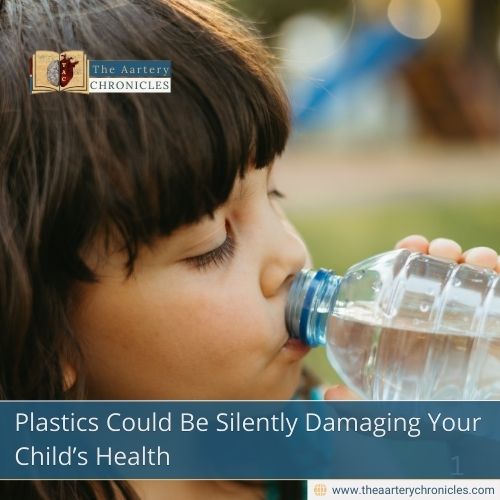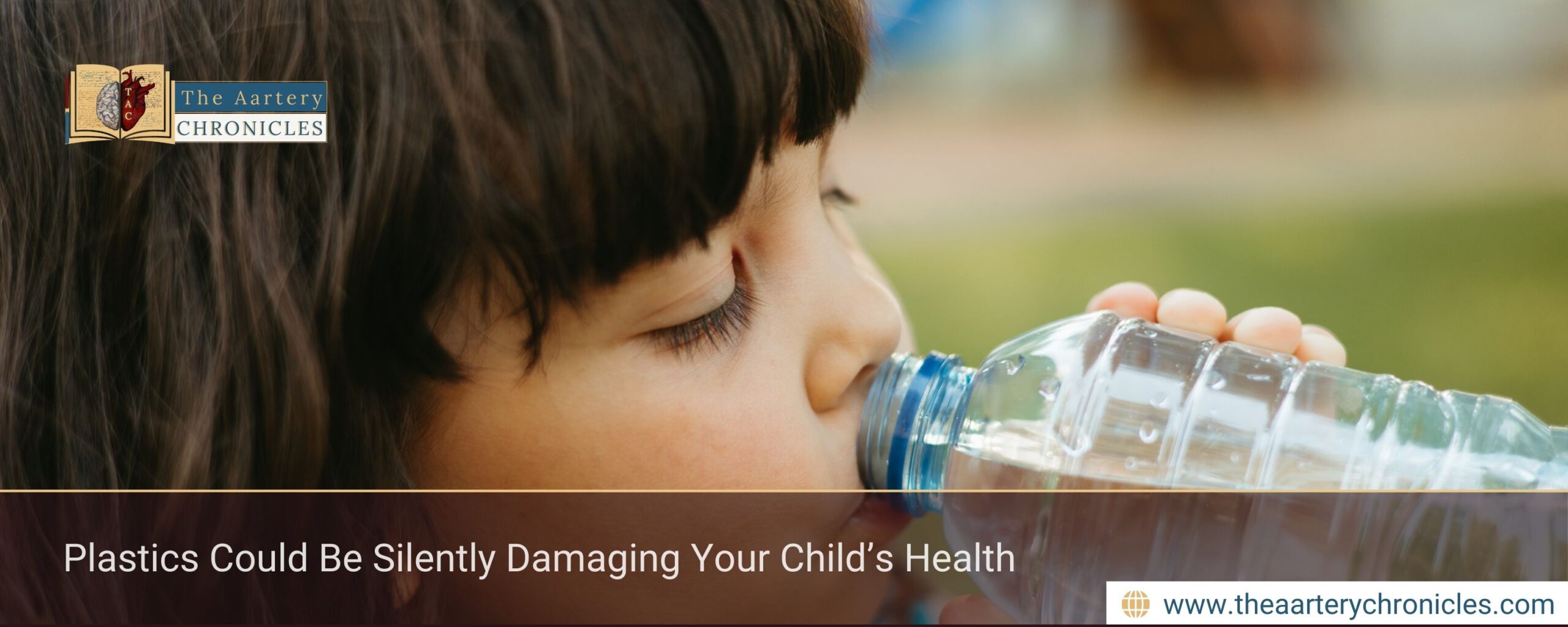

Plastics Could Be Silently Damaging Your Child’s Health
Childhood plastic exposure may be doing far more harm than most parents realize. A major review from NYU Langone Health, recently published in The Lancet Child & Adolescent Health, warns that early and everyday contact with plastics can raise the risk of obesity, infertility, asthma, heart disease, and even reduced IQ later in life.
Everyday Chemicals Hidden in Plastics
Plastics are everywhere: food packaging, water bottles, cosmetics, household products, and even store receipts. But inside these materials are chemicals such as:
- Phthalates – used to make plastics flexible
- Bisphenols – added to harden plastics
- PFAS – designed to resist heat and water
When plastic is heated, scratched, or broken down, it can release microplastics and nanoparticles into the environment. These tiny particles enter the body, where studies show they can disrupt hormones, fuel long-term inflammation, and interfere with brain development.
Why Childhood Exposure Matters Most
The NYU review analysed hundreds of studies involving thousands of children, mothers, and teenagers. Researchers consistently found that childhood plastic exposure increases the likelihood of:
- Obesity and metabolic problems
- Infertility and reproductive health issues
- Asthma and other respiratory conditions
- Heart disease risks in adulthood
- Developmental concerns such as ADHD, autism, and lower IQ scores
According to lead author Dr Leonardo Trasande, Professor of Paediatrics at NYU Grossman School of Medicine, “Plastic exposure plays a role in the early roots of many chronic conditions that extend into adulthood. If we want children to live healthier, longer lives, reducing contact with these harmful substances is critical.”
What Families Can Do Now
While large-scale solutions depend on government and industry action, parents and caregivers can take practical steps to limit exposure at home. These include:
- Avoid heating food in plastic containers
- Choose stainless steel or glass for food storage and drinking bottles
- Reduce the purchase of foods heavily packaged in plastic
- Be mindful of cosmetic and household products that may contain harmful chemicals
A Global Health Priority
The report was released at the same time as an international summit in New York City addressing the worldwide health effects of plastics. Experts stressed that reducing unnecessary plastic use could prevent millions of future cases of chronic illness.
Conclusion
Plastics are no longer just an environmental concern; they are a direct public health issue. The evidence shows that limiting childhood plastic exposure may be one of the most powerful ways to lower the global burden of chronic diseases in the decades ahead. Protecting today’s children from these chemicals is an investment in healthier generations to come.
Source: Inputs from various media Sources
I’m a pharmacist with a strong background in health sciences. I hold a BSc from Delhi University and a pharmacy degree from PDM University. I write articles and daily health news while interviewing doctors to bring you the latest insights. In my free time, you’ll find me at the gym or lost in a sci-fi novel.
- Priya Bairagi
- Health News and Updates,People Forum
- 25 September 2025
- 15:00








